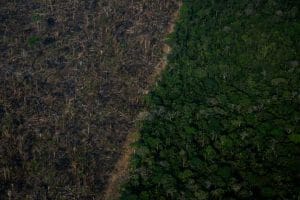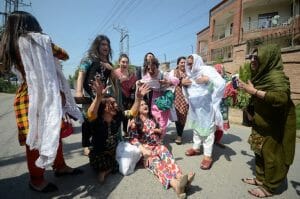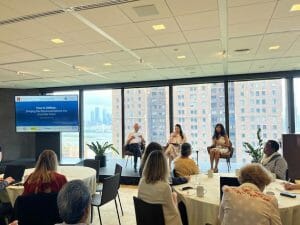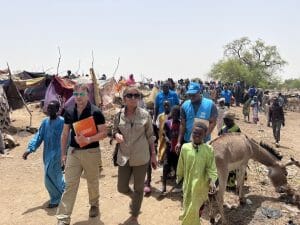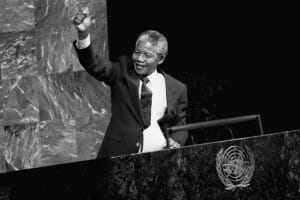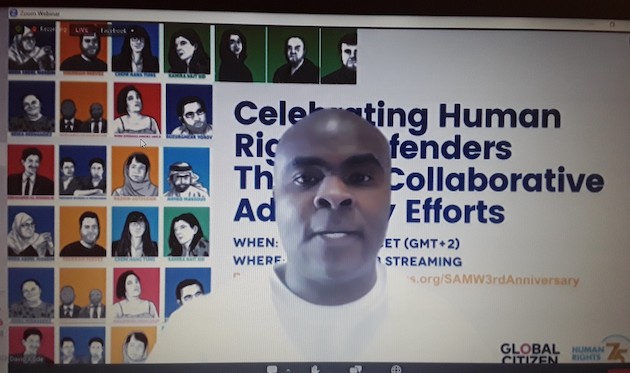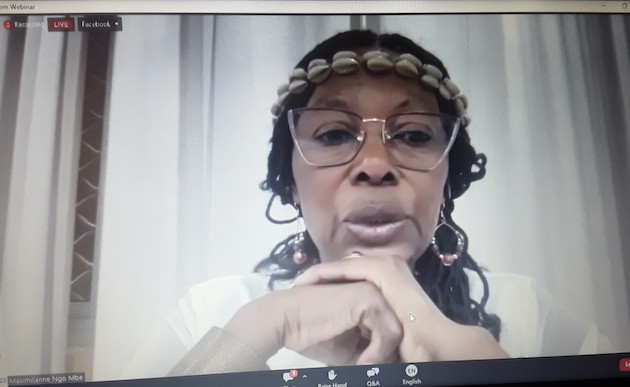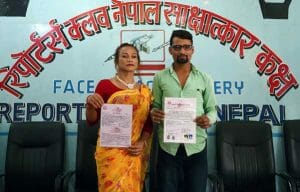

Credit: Prakash Mathema/AFP via Getty Images
By Andrew Firmin
LONDON, Jul 28 2023 (IPS)
Nepal is the latest country to join the global wave of marriage equality. On 28 June, its Supreme Court ruled that the government must immediately offer temporary registration of same-sex marriages, pending a change in the law. Around 200 couples reportedly sought to register as soon as the court judgment was made.
Nepal will therefore become the second country in Asia, after Taiwan, to recognise the right of all couples to marry. It’s little surprise that, as in many countries that have achieved marriage equality, it’s civil society that’s making the change happen, having brought the decisive court case.
Civil society’s breakthrough
Each year brings further important steps forward on two crucial fronts: decriminalisation of same-sex relations in the many countries where they’re still criminalised and recognition of marriage equality in countries that have made more progress.
Only last month a landmark was achieved in Estonia, which became the first post-Soviet state to legalise same-sex marriage. Now Nepal should become the 36th country in the world where LGBTQI+ people can marry, and the ninth this decade.
In Nepal, these efforts built on an earlier legal breakthrough, when in 2007 the Supreme Court ruled that the government must take measures to guarantee equal rights and end discrimination against LGBTQI+ people. This too was the result of a legal petition filed by several LGBQTI+ rights organisations following the country’s transition from a monarchy to a democratic republic. LGBTQI+ people had been as active as anyone else in demanding democracy but LGBTQI+ rights weren’t immediately recognised in the new Nepal.
The 2007 ruling unlocked significant progress: laws that banned gay sex were repealed that year. In 2015, Nepal’s new constitution recognised the fundamental rights of LGBQTI+ people and forbade discrimination. The court also recognised a third gender – a longstanding identity in the cultures of Nepal and other South Asian countries – and the right to have it registered on official documents.
Nepali schools now offer comprehensive sexuality education to students aged 13 to 15, which includes discussion of LGBTQI+ issues. This came as a result of a campaign by the Blue Diamond Society, a civil society organisation that has led the fight for LGBTQI+ rights in Nepal since 2001.
As further rights were recognised, continuing marriage discrimination increasingly stood out. A bill to legalise it was drafted soon after the 2007 ruling, consistent with the court’s order to guarantee equal rights, but not much happened after that. It fell on civil society to hold the government to account.
There are still challenges ahead. As yet, the government hasn’t responded to the court ruling, which suggests it’s hardly in a hurry to legislate. That means people’s rights remain vulnerable to administrative resistance, leading to uneven enforcement. On 13 July, for instance, the Kathmandu District Court rejected an application from a male couple to register their marriage.
Anti-rights backlash
Litigation has become the key means by which civil society wins change on LGBTQI+ rights, as reflected by a recent string of decriminalisation rulings in Caribbean countries. This strategy has the potential to bring legal and policy changes that are ahead of social attitudes. That’s been the case in Nepal, where there’s still stigma, social bias and discrimination, and in Nepal’s often fractious politics, some politicians seek to capitalise on that.
Globally, progress towards the recognition of LGBTQI+ rights is a much stronger trend than regression. But steps forward are inevitably followed by an anti-rights backlash, combined with politically opportunistic efforts to mobilise anti-LGBQTI+ sentiment.
This backlash is seen in the USA, from which emanates most of the funding that enables anti-rights campaigning around the world, as well as in European countries, including Hungary, Spain and Turkey.
But it’s felt most strongly in global south countries, where forces opposing LGBTQI+ rights spread disinformation that these are some kind of western imposition. This is apparent in several countries in Africa – such as Kenya, Nigeria and Uganda – and Asia – including Indonesia, where a new criminal code effectively criminalises same-sex activity, and Malaysia, where politicians profit from vilifying LGBTQI+ people.
That’s why positive moves in Africa and Asia are so valuable: they offer hope to embattled LGBTQI+ people not just domestically but around the world.
Progress in Nepal should particularly give heart to activists in India, where the Supreme Court is currently considering a case demanding the recognition of same-sex marriage, and Japan, where attempts to win court judgments have encountered setbacks. The good news should also resonate in Thailand, a country with a relatively progressive reputation on LGBTQI+ rights but where same-sex marriage still isn’t allowed.
(function(d){var js, id=”pikto-embed-js”, ref=d.getElementsByTagName(“script”)[0];if (d.getElementById(id)) { return;}js=d.createElement(“script”); js.id=id; js.async=true;js.src=”https://create.piktochart.com/assets/embedding/embed.js”;ref.parentNode.insertBefore(js, ref);}(document));
Shifting attitudes
Evidence from the countries that have adopted marriage equality shows that public attitudes to same-sex marriage tend to shift in the wake of legal change. In the countries that introduced it in the early years of this century, it now has majority support.
That’s also the case in Taiwan, which legalised same-sex marriage in 2019. And there, changing social attitudes have gone hand-in-hand with further reforms: in January, the government recognised same-sex marriages of Taiwanese people with foreign partners. In May, same-sex couples were given full adoption rights.
When it comes to changing social attitudes in Nepal, the annual roster of Pride events – the main Nepali Pride Parade held each June, a trans parade in December and an LGBQTI+ women’s rally that marks International Women’s Day each March – will remain vital spaces to make LGBTQI+ people more visible and assert their right to exist in public space.
Nepali civil society will hope that by the next Pride event, the law will have changed. But they’ll do more than hope. They’ll keep campaigning until the law is changed – and after that, they’ll stay alert to backlash and keep pushing back against discrimination.
Andrew Firmin is CIVICUS Editor-in-Chief, co-director and writer for CIVICUS Lens and co-author of the State of Civil Society Report

